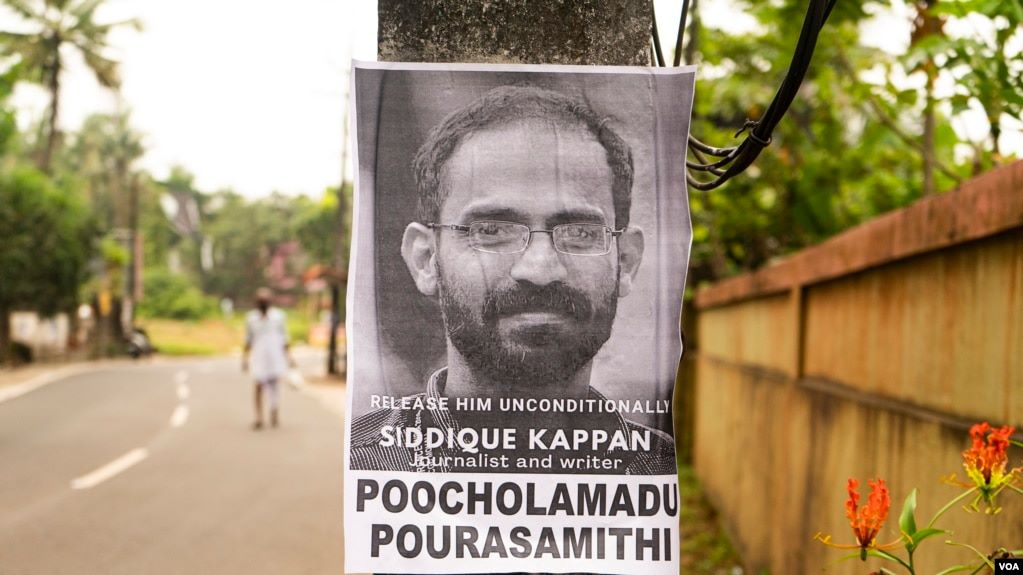India’s Supreme Court on Friday ordered the release on bail of Siddique Kappan, a journalist who has been in jail for more than 23 months for seeking to meet the family of a Dalit girl allegedly gang-raped by upper-caste Hindu men in the northern state of Uttar Pradesh.
After the 19-year-old victim was set ablaze and died, the state government quickly cremated her body, sparking a nationwide outrage.
While Kappan, a New Delhi-based Muslim journalist reporting for Malayalam language news media, was going to the town of Hathras, where the alleged rape occurred, on Oct. 5, 2020, he was arrested and charged under Unlawful Activities Prevention Act-1967 — a stringent anti-terrorism law.
In the charge sheet the police said Kappan reported news, “only and only to incite Muslims which is the hidden agenda of [Muslim political organization] Popular Front of India or PFI.” The police added in the charge-sheet that PFI was engaged in terrorism-related activities and Kappan was involved with the organization.
Media rights groups the Committee to Protect Journalists and Vienna-based media International Press Institute condemned Kappan’s arrest and demanded he be released immediately.
After the Allahabad High Court had rejected Kappan’s bail petition in August, he challenged the court order in the Supreme Court.
The Uttar Pradesh police opposed his bail in the Supreme Court, with their lawyer claiming Kappan was going to Hathras in a “conspiracy” to “incite riots.”
While granting Kappan bail Friday, Indian Chief Justice Uday Umesh Lalit said, “Every person has the right to free expression. He is trying to show that victim needs justice and raise a common voice. Is that a crime in the eyes of the law?”
The order said Kappan must be freed within three days.
Kappan’s lawyer, Mohamed Dhanish KS called the police charges “totally baseless and fabricated.”
“At the time of argument in the Supreme Court, the prosecution failed to establish any serious offense committed by Mr. Kappan. It was clear that the stringent UAPA was invoked against him without applying mind or with substantiating act or evidence,” the lawyer told VOA.
Delhi University professor of Hindi Apoorvanand, who only uses one name, said, Kappan was trying to visit Hathras like many other journalists and activists “who were pained and outraged by the criminality.”
“But he, being a Muslim, was trapped by the UP police and framed. He had to spend more than 710 days in prison for doing what is just normal in a free society and what the court itself said was perfectly within his rights to do,” Apoorvanand told VOA.
“His bail petition was repeatedly rejected. The state persisted with its lies. The Supreme Court has taken only the first step in undoing this criminal injustice done to him.”
Kappan’s wife, Raihanath Kappan, said she was happy with Friday’s court order.
“For two years we went through immense pain while continuing the legal battle. I am happy that finally he is released,” the wife told VOA.
“Many people and groups stood by us in our fight for justice. I am thankful to all of them,” she said.__VOA News





